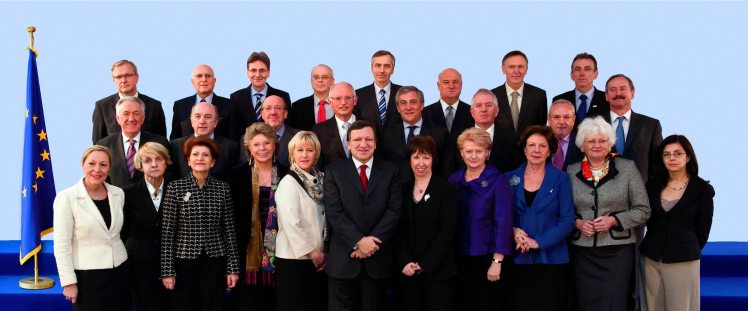This is a simple article designed counter the myth that the EU is undemocratic.
There are three important decision making bodies in the EU. They include the European Parliament, the Council of the EU and the European commission.
How exactly do the British people elect these bodies?
We directly elect the European Parliament in the European elections every five years. We have in total 73 Members of the European Parliament out of 751. The amount of Members of the European Parliament is determined by the size of the population. For a vote to pass you need a majority vote in favor.
 The European Parliament elects and supervises the European Commission. The European Commissions role is to propose changes and to implement changes agreed with the Council of the EU and the European Parliament.
The European Parliament elects and supervises the European Commission. The European Commissions role is to propose changes and to implement changes agreed with the Council of the EU and the European Parliament.

Inaugural meeting of the Czech Presidency with the EC. The Council of the EU is made up of elected ministers from every state in the EU. These ministers are elected directly by the people in our general election. For something to pass here, you need a majority vote in favor. However on sensitive issues such as taxation and foreign policy, all ministers need to agree. You can see David Cameron at the back on the right.

No decision, policy or agreement can be passed without all three of these bodies approving it.
In total there are three directly elected chambers in the European Union.
- The Council of Ministers has a UK minister elected by the UK population permanently sitting in the chamber.
- The European Parliament, Members of the European Parliament are directly elected in the European elections.
- In addition the European Council has every head of state sitting around the table, who determine the general direction of EU policy. All three bodies require a majority or unanimous vote.
Here is a diagram which makes it clear the process of decision making.

All the information you need to know about how these institutions work are linked below, these links are direct links to the European Union website describing the factual functioning of the EU.
References
http://europa.eu/about-eu/institutions-bodies/european-parliament/index_en.htm
http://europa.eu/about-eu/institutions-bodies/council-eu/index_en.htm
http://europa.eu/about-eu/institutions-bodies/european-commission/index_en.htm
http://europa.eu/about-eu/institutions-bodies/european-council/index_en.htm

This is not true Commissioners are appointed How did Mandelson become one. The patliament does not have power excerpt to dismiss the commision which it did ib 1999 after gross fraud. Why are you peddling these inaccuarcies?
LikeLike
Well your opinion is directly contradicted by the European Union website.
Appointing the President
The candidate is put forward by national leaders in the European Council, taking account of the results of the European Parliament elections. He or she needs the support of a majority of members of the European
Parliament in order to be elected.
Selecting the team
The Presidential candidate selects potential Vice-Presidents and Commissioners based on suggestions from the EU countries. The list of nominees has to be approved by national leaders in the European Council.
Each nominee appears before the European Parliament to explain their vision and answer questions. Parliament then votes on whether to accept the nominees as a team. Finally, they are appointed by the European Council, by a qualified majority.
The current Commission’s term of office runs until 31 October 2019.” http://europa.eu/about-eu/institutions-bodies/european-commission/index_en.htm
LikeLike